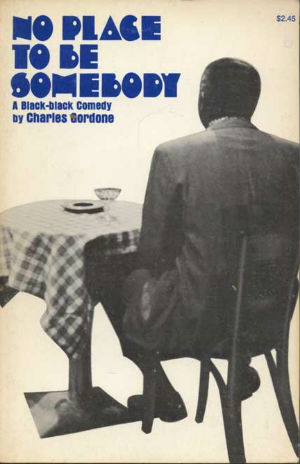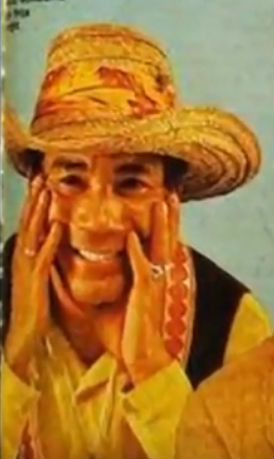No Place to Be Somebody: A Black-Black Comedy
Description of No Place to Be Somebody: A Black-Black Comedy
”Charles Gordone’s 1969 play No Place to be Somebody: A Black-Black Comedy, received the 1970 Pulitzer Prize for Drama. Gordone was the first African American playwright to receive the Pulitzer Prize, and this production was the first off-Broadway play to receive this honor, making this play a historic landmark in African American Civil Rights era literature, as well as all Black literature. The story centers around patrons of Johnny’s Bar owned by the young Johnny Williams, where he bartender tries to outwit a syndicate of white mobsters. Parallel plots focus on the patrons, who each fulfill an active an important role in the multifaceted and humorous play, and target themes such as race, ethnicity and gender throughout the play. The Civil Rights movement was at a fever pitch at this time, with movements becoming more militaristic, and less peaceable, and Gordone’s brash play interacts with the themes of these movements among others to bring them to life on stage.” —Olympia Scott, AALBC
Written over the course of seven years, the play explores racial tensions in a Civil Rights-era story about a black bartender who tries to outsmart a white mobster syndicate. In his final speech, in June 1995, delivered at the Museum of the American West in Los Angeles, Gordone described the play as being “about country folk who had migrated to the big city, seeking the urban myth of success, only to find disappointment, despair, and death.”
After an experimental production directed by Gordone, in November 1967, the play was produced in a showcase of three weekends at The Other Stage in Joe Papp’s Public Theater in South Manhattan by director Edward Cornell. The play was then launched on May 4, 1969 by Joseph Papp on a 248-performance run at the New York Shakespeare Festival’s Public Theater



